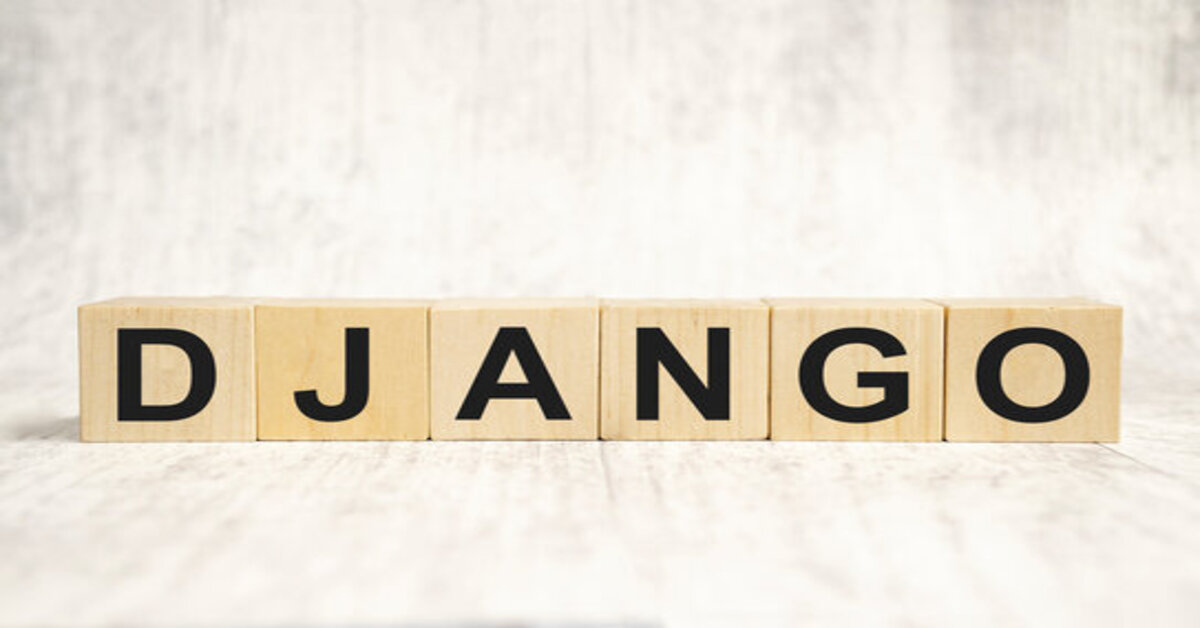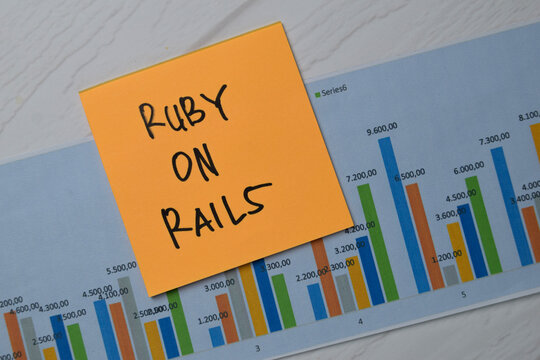Django vs Ruby on Rails: Which Framework is Better in 2023
4 min read | By Postpublisher P | 20 January 2023 | Frameworks
With the rising website need for businesses worldwide, many web frameworks are gaining popularity. But the competition of Django vs Ruby on Rails is still open to debate.
Both are software frameworks created to support the development of web apps. These frameworks come with a set of pre-configured codes that can be altered as per the business needs. Developers can now speed up their development process as they now have a rigid structure instead of starting from scratch.
But the best? This article will have a detailed comparison of the most popular and oldest web frameworks – Django vs Rails. Let’s dive in and see if we can find out the best web framework in 2023.
Django – An Overview
If you have been working in Python, you must have come across the term Django. It is a high-speed web framework that uses a high-level programming language—python. This open-source framework is based on a Model, View, and Controller (MVC) setup for fast web app development.
 In Django, the controller has all routes defined. You can add more views or models which will not affect the whole because everything is collectively separated. This allows different teams to work on different parts without interacting with each other – making rapid development possible.
Django was developed in 2005 and with 18 years of usage, it has served millions of people and has a vast community of developers. It also has an extensive library of plugins, high-tech security options, authentication capabilities, and more.
This framework is known for its versatility and ability to handle huge data. It’s no wonder that many popular companies use the Django web framework like Google, YouTube, Instagram, Netflix, Pinterest, Firefox, & The Washington Post.
In Django, the controller has all routes defined. You can add more views or models which will not affect the whole because everything is collectively separated. This allows different teams to work on different parts without interacting with each other – making rapid development possible.
Django was developed in 2005 and with 18 years of usage, it has served millions of people and has a vast community of developers. It also has an extensive library of plugins, high-tech security options, authentication capabilities, and more.
This framework is known for its versatility and ability to handle huge data. It’s no wonder that many popular companies use the Django web framework like Google, YouTube, Instagram, Netflix, Pinterest, Firefox, & The Washington Post.
Ruby On Rails – An Overview
Ruby is one of the most popular and oldest programming languages developed in 1990. This is a basis for the Ruby on Rails (RoR) framework. Ruby is considered to be an expressive & easy syntax to use. It has a free format language in which you can start writing code from any line or column.
 Coming to Rails – it is also an MVC-based framework that allows Ruby to solve problems to develop web apps. It is found to be simple and efficient as you can develop forms, menus, tables, etc using ready-made code libraries.
Ruby on Rails is well-known for saving your development time with modules and plugins that are ready to use. You can easily modify the existing code and make changes after launching the site. Proper security measures are built within the framework too.
With a large community regularly improving code, Ruby has several repositories in Github to facilitate faster development time. These simple and easy frontend & backend abilities to construct web apps are being used by many companies like Shopify, Airbnb, SlideShare, CrunchBase, Bloomberg, Dribble, and GitHub.
Coming to Rails – it is also an MVC-based framework that allows Ruby to solve problems to develop web apps. It is found to be simple and efficient as you can develop forms, menus, tables, etc using ready-made code libraries.
Ruby on Rails is well-known for saving your development time with modules and plugins that are ready to use. You can easily modify the existing code and make changes after launching the site. Proper security measures are built within the framework too.
With a large community regularly improving code, Ruby has several repositories in Github to facilitate faster development time. These simple and easy frontend & backend abilities to construct web apps are being used by many companies like Shopify, Airbnb, SlideShare, CrunchBase, Bloomberg, Dribble, and GitHub.
Django vs Ruby on Rails
Now, it’s time for the challenging part—to choose between Django vs Ruby on Rails. As discussed above, both frameworks offer great solutions to many businesses. But if you are to choose the ultimate one, is there a clear winner here? Let’s find out with the help of a few factors that affect Django vs Ruby on rails development services.
Community:
Django is managed by a team of volunteers with roles like Mergers, Releasers, and Steering council groups who have pre-defined rights and memberships.
Whereas Ruby has a core team – a group of long-term contributors along with a group of alumni, an issues team, a committers team, and thousands of volunteer contributors.
When the number is concerned, Rails have a larger global community compared to the Django framework. They have more libraries also called gems obtainable for your use.
While using Django, you might face situations to implement a lot of libraries yourself, which can be omitted by using Ruby on Rails.
However, it is good to note that there is a surprising popularity of the Python language in the last five years making more eyes turn toward the simplicity of Django.
Productivity:
If you correlate productivity with speed, here is a one-liner: Ruby on Rails is 0.7% faster than Django. This might be a small percentage of difference but sometimes that can make a lot of difference.
Also as mentioned above in this article, Ruby on Rails can save your development time with ready modules and plugins. You can also modify the existing code even after launching.
But if you are someone concerned about the ease of use and straightforward approach to solving problems, you’ll love Django because it is explicit and it’s easier to figure out the issue when something goes wrong.
Ease-of-Use:
Many developers have stated that they enjoy developing with Django which starts with a simple installation – only a few clicks. Whereas there are a lot of hiccups with the deployment and configuration of Ruby on Rails especially if you are a newbie to it.
Though it is a subjective opinion, you cannot turn a blind eye to the easy and understandable user experience of Django.
Django vs Ruby on Rails: The Conclusion
Though the debate of Django vs Rails is unending, there is a logical solution to it. The best framework depends on two main factors:
1.Your Business Needs:
Django framework is best-suited if your business has/involves:
- Maths & complex computing,
- Data visualizations & analysis projects,
- Huge databases or deal with heavy data projects,
- Looking for standardized large-scale web development solutions.
Use Ruby on Rails if your business has/involves:
- High-traffic projects,
- Real-time update and scalability,
- Startups, early-stage businesses & small businesses,
- Short deadlines and you need quick solutions,
- Require specific front-end libraries for the complex project with unique features.
2.The Language You Love To Use:
Even though the debate is all about Django vs Ruby on Rails framework, the missing piece here is the language you are comfortable working with to build a web application. Since both frameworks are equal, it eventually matters whether you like to code in Python or Ruby. With this perspective, we hope you can take a side with grace.
Still, confused with Django vs Ruby on Rails? Here is one thing you should do – try both and use the one that you like.
The latest from our editors
Join over 150,000+ subscribers who get our best digital
insights, strategies and tips delivered straight to their inbox.
 ChatGPT
ChatGPT
 Grok
Grok
 Perplexity AI
Perplexity AI

 In Django, the controller has all routes defined. You can add more views or models which will not affect the whole because everything is collectively separated. This allows different teams to work on different parts without interacting with each other – making rapid development possible.
Django was developed in 2005 and with 18 years of usage, it has served millions of people and has a vast community of developers. It also has an extensive library of plugins, high-tech security options, authentication capabilities, and more.
This framework is known for its versatility and ability to handle huge data. It’s no wonder that many popular companies use the Django web framework like Google, YouTube, Instagram, Netflix, Pinterest, Firefox, & The Washington Post.
In Django, the controller has all routes defined. You can add more views or models which will not affect the whole because everything is collectively separated. This allows different teams to work on different parts without interacting with each other – making rapid development possible.
Django was developed in 2005 and with 18 years of usage, it has served millions of people and has a vast community of developers. It also has an extensive library of plugins, high-tech security options, authentication capabilities, and more.
This framework is known for its versatility and ability to handle huge data. It’s no wonder that many popular companies use the Django web framework like Google, YouTube, Instagram, Netflix, Pinterest, Firefox, & The Washington Post.
 Coming to Rails – it is also an MVC-based framework that allows Ruby to solve problems to develop web apps. It is found to be simple and efficient as you can develop forms, menus, tables, etc using ready-made code libraries.
Ruby on Rails is well-known for saving your development time with modules and plugins that are ready to use. You can easily modify the existing code and make changes after launching the site. Proper security measures are built within the framework too.
With a large community regularly improving code, Ruby has several repositories in Github to facilitate faster development time. These simple and easy frontend & backend abilities to construct web apps are being used by many companies like Shopify, Airbnb, SlideShare, CrunchBase, Bloomberg, Dribble, and GitHub.
Coming to Rails – it is also an MVC-based framework that allows Ruby to solve problems to develop web apps. It is found to be simple and efficient as you can develop forms, menus, tables, etc using ready-made code libraries.
Ruby on Rails is well-known for saving your development time with modules and plugins that are ready to use. You can easily modify the existing code and make changes after launching the site. Proper security measures are built within the framework too.
With a large community regularly improving code, Ruby has several repositories in Github to facilitate faster development time. These simple and easy frontend & backend abilities to construct web apps are being used by many companies like Shopify, Airbnb, SlideShare, CrunchBase, Bloomberg, Dribble, and GitHub.